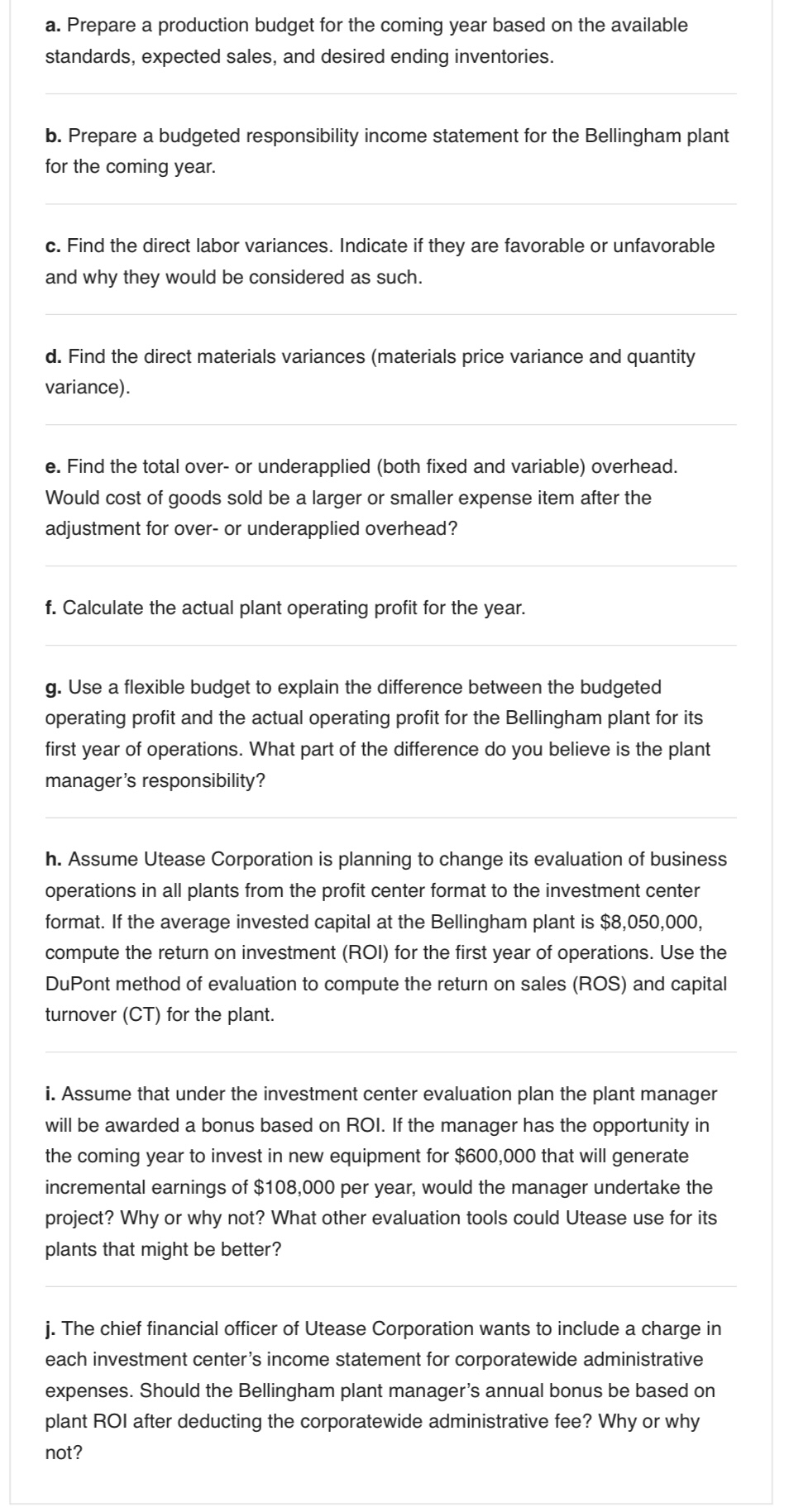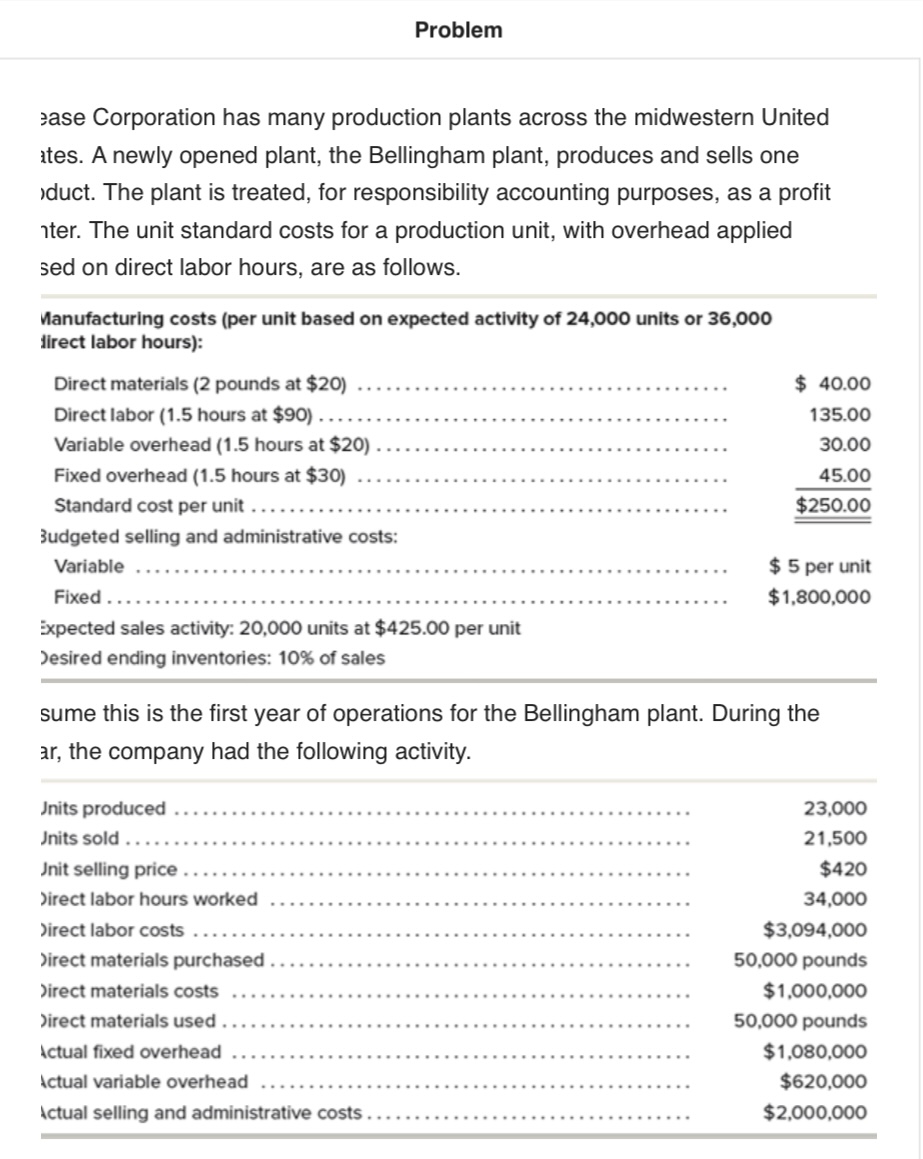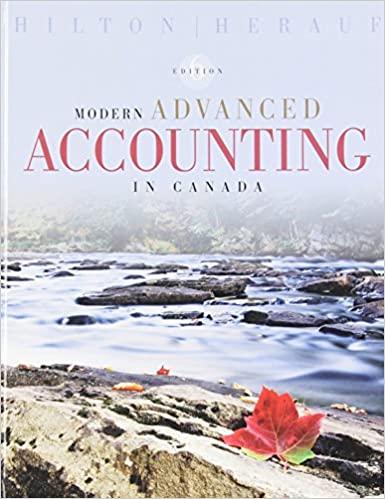a. Prepare a production budget for the coming year based on the available standards, expected sales. and desired ending inventories. b. Prepare a budgeted responsibility income statement for the Bellingham plant for the coming year. c. Find the direct labor variances. Indicate if they are favorable or unfavorable and why they would be considered as such. d. Find the direct materials variances (materials price variance and quantity variance). e. Find the total over- or underapplied (both fixed and variable) overhead. Would cost of goods sold be a larger or smaller expense item after the adjustment for over- or underapplied overhead? f. Calculate the actual plant operating profit for the year. 9. Use a flexible budget to explain the difference between the budgeted operating profit and the actual operating profit for the Bellingham plant for its first year of operations. What part of the difference do you believe is the plant manager's responsibility? h. Assume Utease Corporation is planning to change its evaluation of business operations in all plants from the profit center format to the investment center format. If the average invested capital at the Bellingham plant is $8,050,000, compute the return on investment (ROI) for the first year of operations. Use the DuPont method of evaluation to compute the return on sales (ROS) and capital turnover (CT) for the plant. i. Assume that under the investment center evaluation plan the plant manager will be awarded a bonus based on ROI. If the manager has the opportunity in the coming year to invest in new equipment for $600,000 that will generate incremental earnings of $108,000 per year, would the manager undertake the project? Why or why not? What other evaluation tools could Utease use for its plants that might be better? i. The chief financial officer of Utease Corporation wants to include a charge in each investment center's income statement for corporatewide administrative expenses. Should the Bellingham plant manager's annual bonus be based on plant ROI after deducting the corporatewide administrative fee? Why or why not? Problem ease Corporation has many production plants across the midwestern United ites. A newly opened plant, the Bellingham plant, produces and sells one duct. The plant is treated, for responsibility accounting purposes, as a profit ter. The unit standard costs for a production unit, with overhead applied sed on direct labor hours, are as follows. Manufacturing costs (per unit based on expected activity of 24,000 units or 36,000 direct labor hours): Direct materials (2 pounds at $20). $ 40.00 Direct labor (1.5 hours at $90) . .. 135.00 Variable overhead (1.5 hours at $20) . 30.00 Fixed overhead (1.5 hours at $30) 45.00 Standard cost per unit . .. . $250.00 Budgeted selling and administrative costs: Variable . . . . . . . . . . . . . ...... $ 5 per unit Fixed . . $1,800,000 Expected sales activity: 20,000 units at $425.00 per unit Desired ending inventories: 10% of sales sume this is the first year of operations for the Bellingham plant. During the ar, the company had the following activity. Units produced .. . 23,000 Jnits sold . . . . . . . . 21,500 Jnit selling price . . $420 Direct labor hours worked 34,000 Direct labor costs . $3,094,000 Direct materials purchased . 50,000 pounds Direct materials costs $1,000,000 Direct materials used . . . . . . . 50,000 pounds Actual fixed overhead .. . . $1,080,000 Actual variable overhead $620,000 Actual selling and administrative costs . .. . . $2,000,000








